If You Want Bouncy Hair and a Thriving Scalp, Consider Adding This Shampoo to Your Next Washday
Here's the easiest, expert-approved way for salon-fresh tendrils.

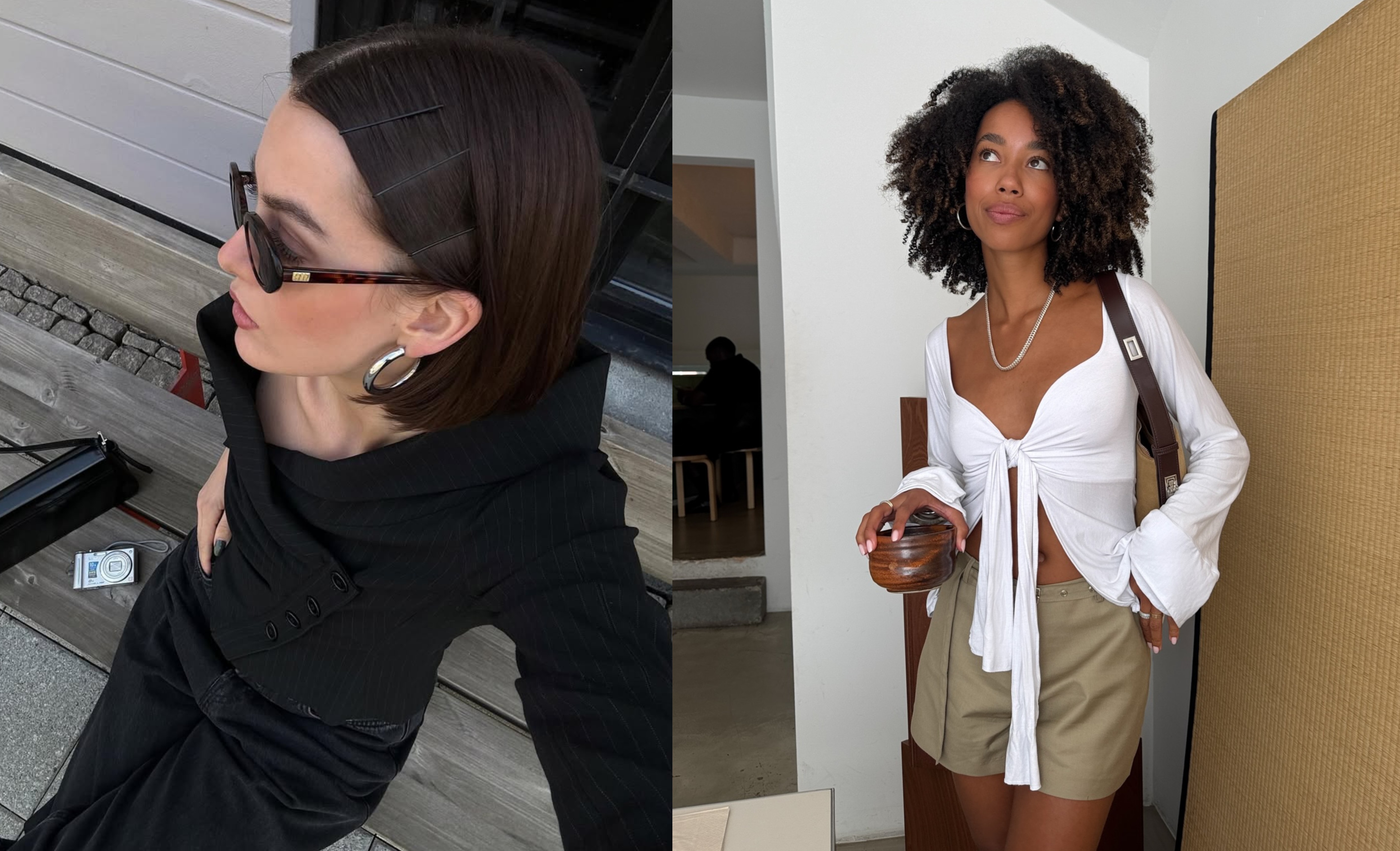
One of the things I love to do the most as a beauty editor is to learn about scalp and hair health. It's easy to forget just how much the former affects the appearance, feel, and even smell of the latter, but now and then, we get a nasty wake-up call to remind us of its importance by giving way to greasy-looking strands. While there are members of the population that don't have to think much about their scalp health daily, it wouldn't be fair to ignore just how much effort goes into the scalp and hair health journey of others.
While I've never suffered from having oily strands (I have 4c coils, meaning my hair is much more prone to dryness and breakage), I spent years dealing with the impact of having an unbalanced scalp before I discovered tea tree oil with the help of a hair expert. To learn more about how to revive oily hair and keep it looking bouncy and healthy, I tapped three hair experts for their best advice and product recommendations.
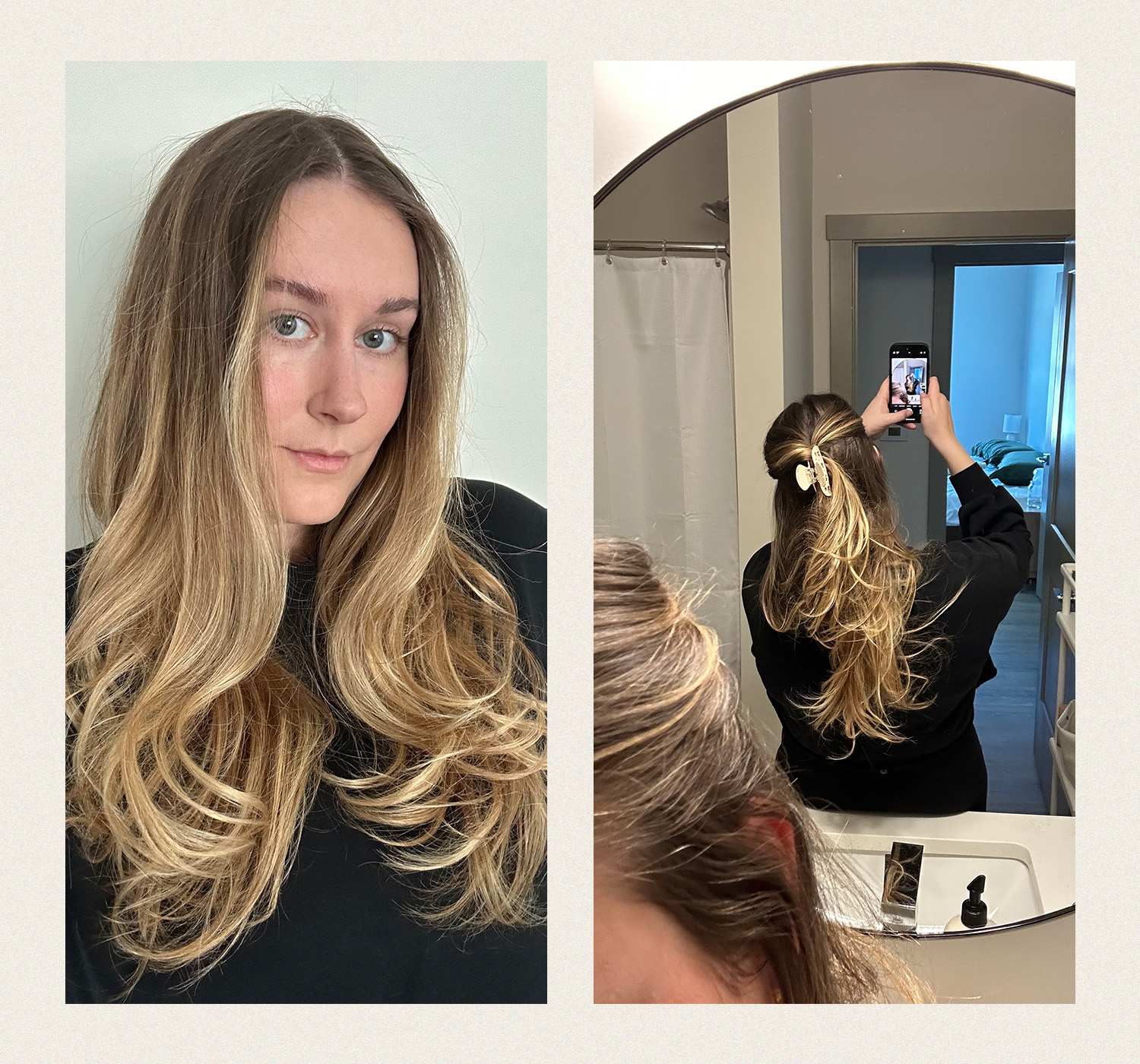
Beauty Editor Kaitlyn McLintock after using a clarifying shampoo on her oily hair for bouncy, voluminous strands.
The Best Shampoos for Oily Hair, Listed
- Best for Addressing Itchiness: L'anza Healing Remedy Scalp Balancing Cleanser
- Best for Enhancing Volume: Kérastase Specifique Divalent Balancing Shampoo
- Best for Strengthening Strands: Bumble and Bumble Sunday Clarifying Shampoo
- Best for Purifying the Scalp: R+Co Lost Treasure Apple Cider Vinegar Cleansing Rinse
- Best for Balancing the Scalp: Briogeo Superfoods Mango + Cherry Oil Control Balancing Shampoo
Best for Addressing Itchiness: L'anza Healing Remedy Scalp Balancing Cleanser
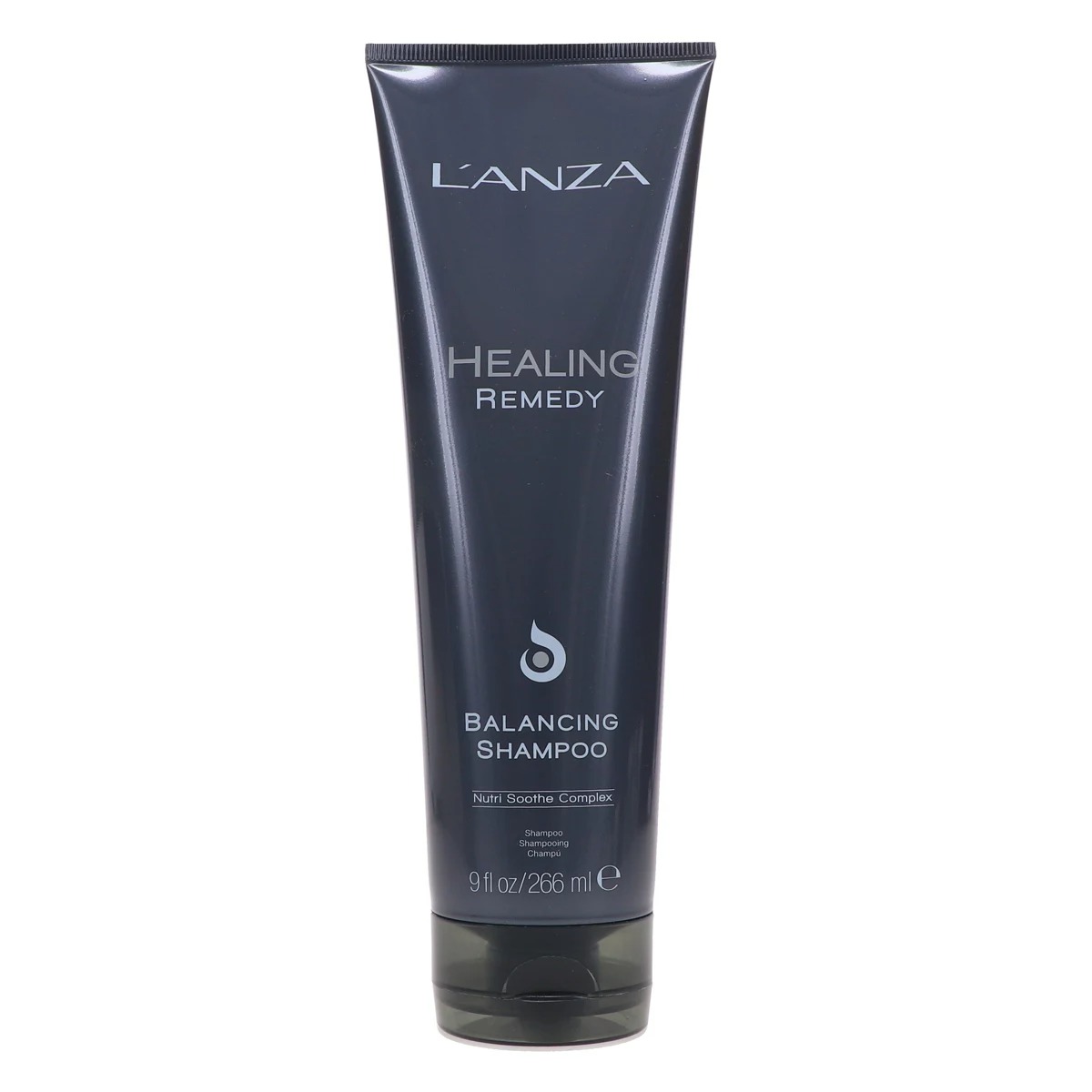
Key Ingredients: Gugo bark, coconut water, shiso mint leaf, papaya, lavender oil)
If you're combating an itchy or oily scalp, it's smart to incorporate a shampoo in your washday routine that's formulated with fast-acting, cutting-edge technology. "L'anza has a Healing Remedy Scalp Balancing Cleanser that focuses on balancing out the PH of the hair and scalp," Friese says. It uses a patented Keratin Healing System to balance oiliness and address scalp issues while ridding hair of excess sebum for a healthy-looking shine.
Scented: Yes (shiso mint leaf, lavender oil)
Safe for Color-Treated Hair: Yes
Customer Review: "The itchiness and flakes on my scalp have basically vanished! It has a refreshing scent. Minimizes the oil coming from my scalp so I don’t have to wash as often! Great price for a great product! Perfect amount of shampoo. Will for sure be gifting this!"
Pros: Boosts volume and thickness with a blend of oils and vitamins
Cons: None
Best for Enhancing Volume: Kérastase Specifique Divalent Balancing Shampoo
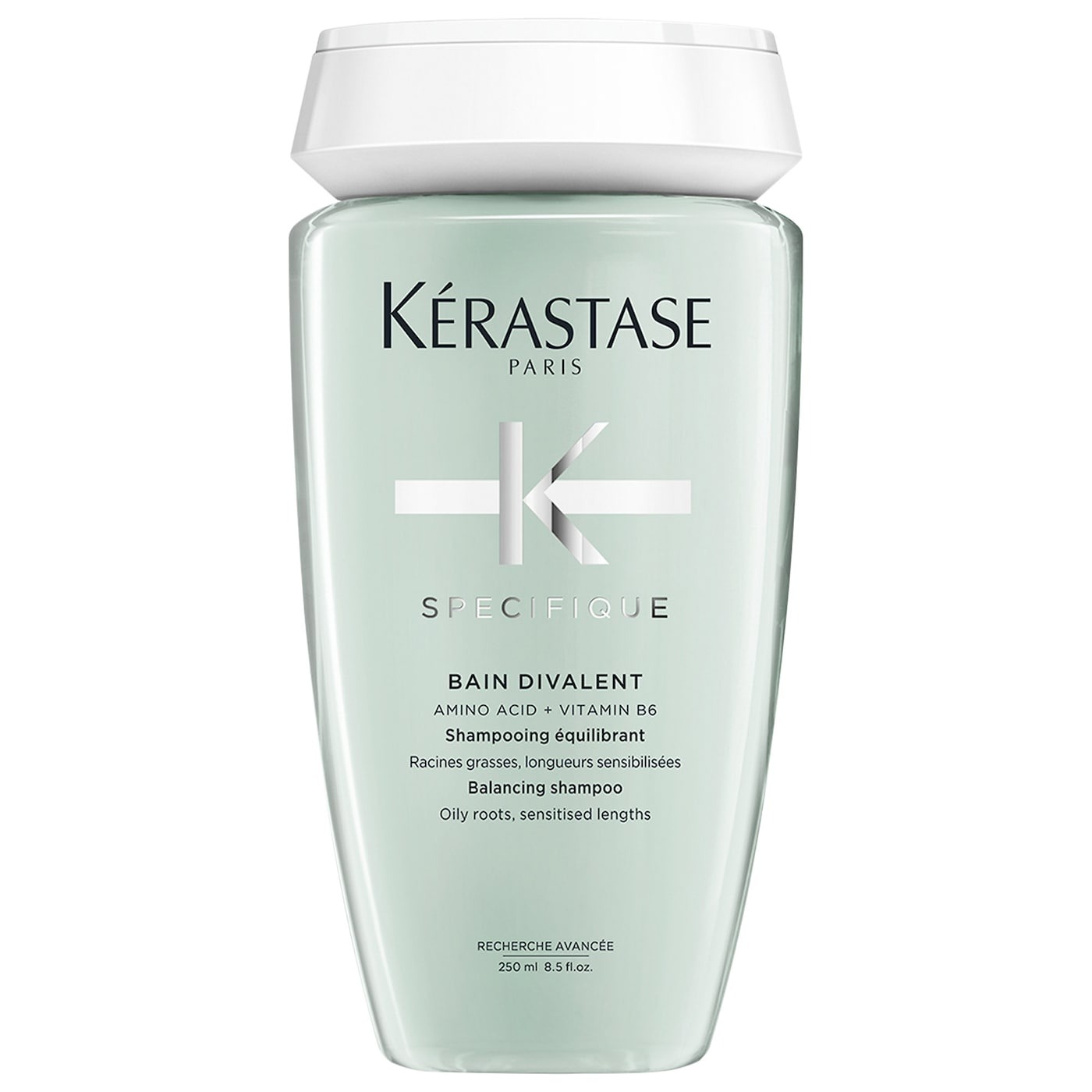
Key Ingredients: Amino acids, vitamin B6
This shampoo by Kérastase balances the scalp by removing excess oil and odor from the scalp using an effective blend of amino acids and vitamin B6. You'll be left with a scalp and hair that's protective from external aggressors and pollutants, leaving your strands soft and shiny, and gently fragranced. Plus, its lightweight formula delivers enhanced volume at the root and easy detangling.
Scented: Yes (Indian basil, freesia, and sandalwood)
Safe for Color-treated Hair: Yes
Customer Review: "I have been using this shampoo for almost a year now, and I really love it. For reference, I have oily roots and the rest of my hair is normal. I don't shampoo my hair daily so I use this once every 3-4 days and it seems to help balance my scalp without drying out my ends (like other shampoos tend to.)"
Pros: Gently removes excess oil and odor from the scalp and roots
Cons: Can be drying without to the ends of the strands—pair with a hydrating conditioner
Best for Strengthening Strands: Bumble and Bumble Sunday Clarifying Shampoo
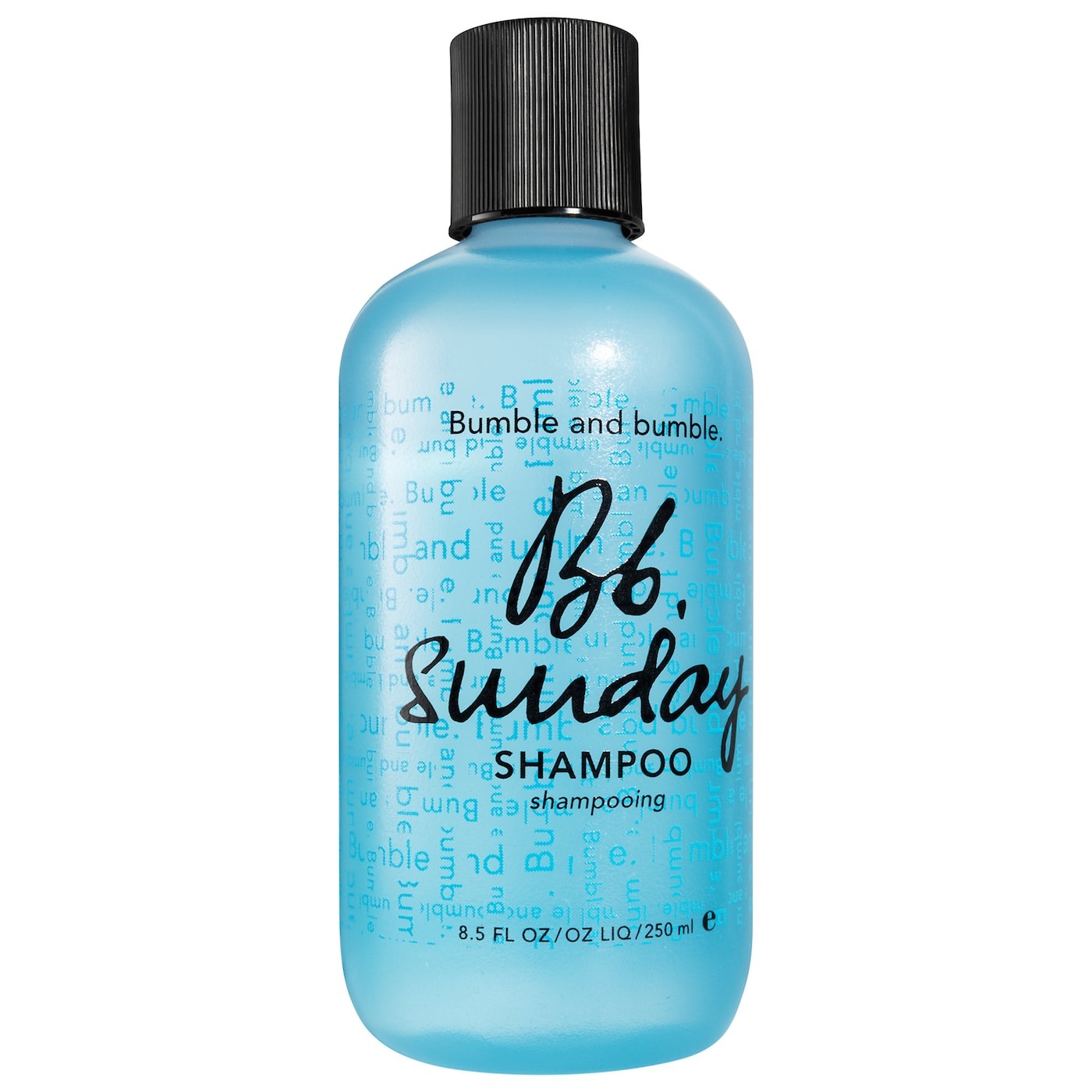
Key Ingredients: Panax ginseng root, rosemary leaf extract, sage leaf extract
Ideal for all hair types and textures, the Sunday Clarifying Shampoo uses a formula designed for weekly use to address oily scalps and strands. Using panax ginseng root, rosemary leaf extract, and sage leaf extract, it cleanses and strengthens the hair shaft. You'll have shiny, salon-level hair in no time. If you have color-treated hair, however, you might want to skip this one.
Scented: yes (sparkling cassis, watery cyclamen, and mint leaf)
Safe for Color-Treated Hair: no
Customer Review: "Love this clarifying shampoo, a little goes a long way so don't be discouraged by the price per ounce. I usually pre-oil my hair before washing and only wash every few days, and this gets my hair squeaky clean after a single wash. Be sure to not use more than once a week to not over-dry your hair!"
Pros: Sweeps away oil, buildup, and residue from the scalp and strands while promoting vibrancy
Cons: Has a tendency to be drying when used two frequently (more than twice a week)
Best for Purifying the Scalp: R+Co Lost Treasure Apple Cider Vinegar Cleansing Rinse
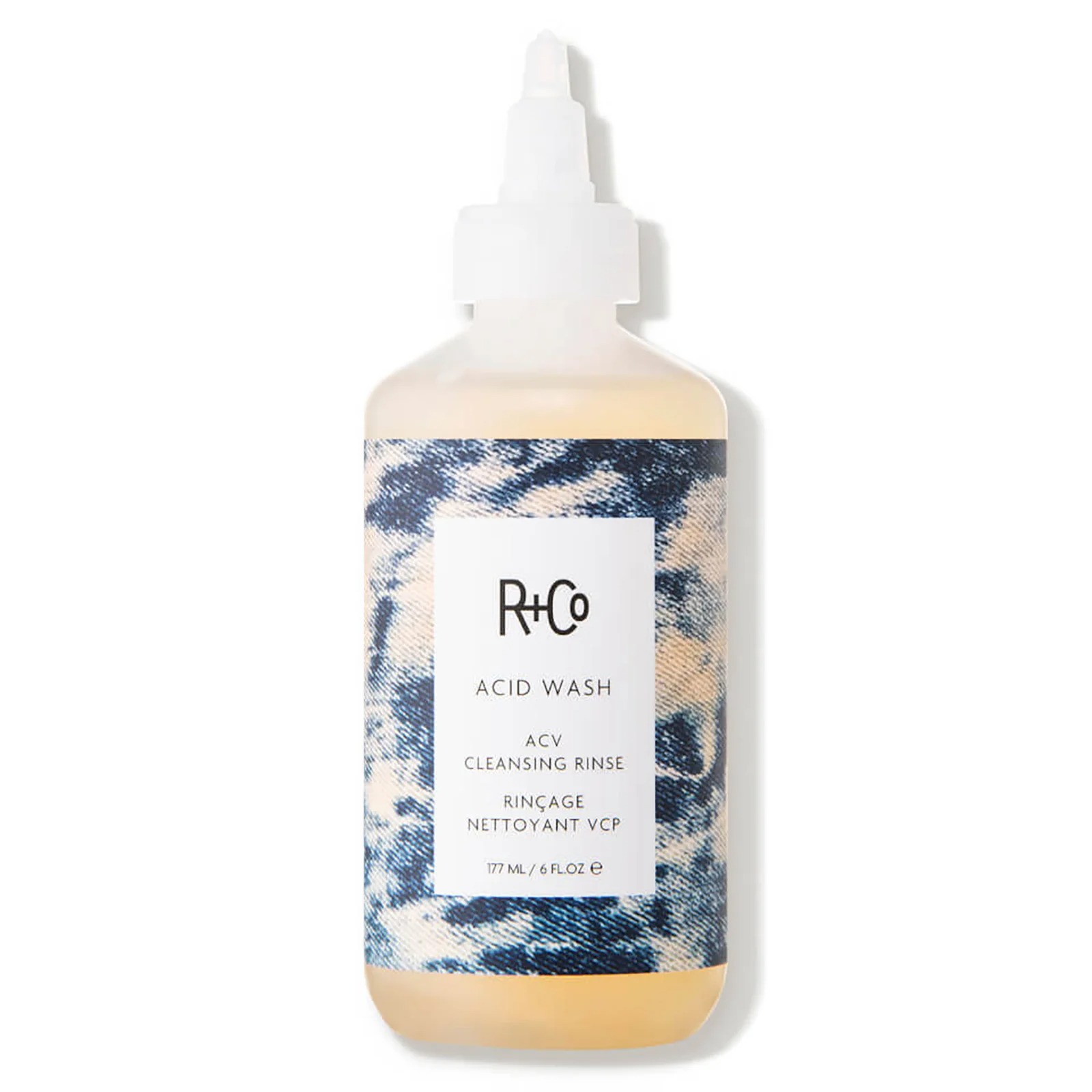
Key Ingredients: apple extract, aloe vera leaf juice, tamanu seed oil
R+Co has a lot of treasures in its collection of impressive haircare offerings, but the Lost Treasure Apple Cider Vinegar Cleansing Rinse is one of my all time favorites. This one sweeps away product buildup and purifies the hair and scalp with a formula using all the good stuff (A.K.A. apple fruit extract, aloe vera leaf juice, and tamanu seed oil). It also includes coconut oil, which defines hair and raises hydration levels.
Scented: yes (Sicilian lemon, tangerine, eucalyptus, green tea, tree moss, crisp amber)
Safe for Color-Treated Hair: yes
Customer Review: "I have fine hair that gets oily quickly, meaning I have to wash it almost daily. This rinse does a great job of gently cleaning without stripping, so I only have to fully shampoo once or twice a week. Lightweight but effective!"
Pros: Uses apple cider as a natural exfoliant to protect the hair and scalp while also replenishing moisture
Cons: None
Best for Reducing Buildup: Maple Holistic Degrease Shampoo
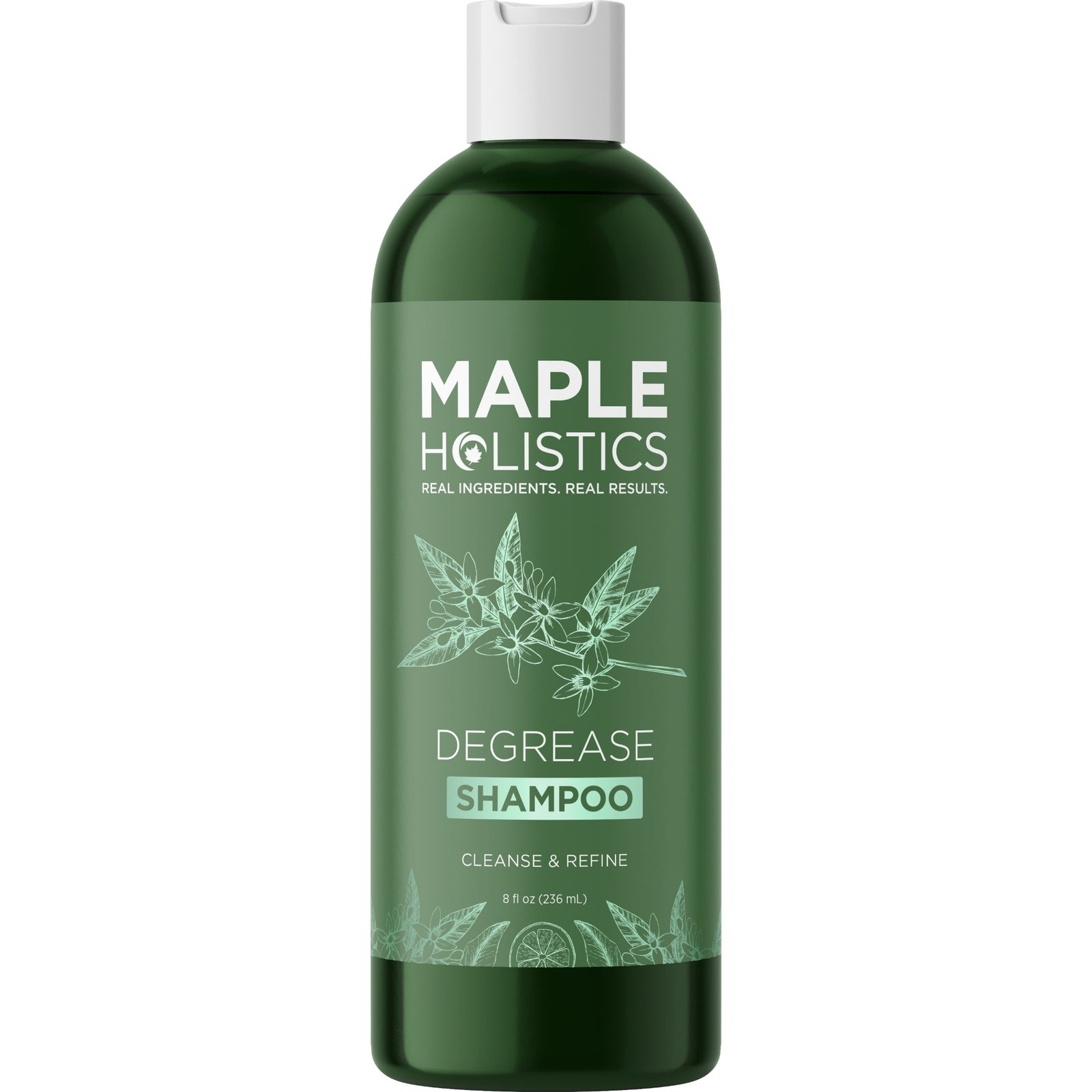
Key Ingredients: rosemary essential oil, lemon essential oil, jojoba oil
Here's an aptly named shampoo works hard to cleanse purify your hair and scalp by reducing buildup. It has a unique sulfate-free formula that uses rosemary essential oil, lemon essential oil, and jojoba oil to restore balance to the scalp while cleansing each strand from root to tip and flushing both with a wave of moisture. The shampoo also ramps up vibrancy, luster, and body.
Scented: yes (lemon, rosemary, basil)
Safe for Color-Treated Hair: yes
Customer Review: "My roots unfortunately get oily pretty quickly between washes, and this shampoo really helps my scalp and roots feel clean and refreshed on a daily basis. It also smells amazing and makes me look forward to shampooing! I used to switch shampoo all the time, looking for something that works, but I've been reordering this one."
Pros: Cleanses the hair and scalp of dirt, flakes, and oils while boosting moisture
Cons: Does not use a sulfate-free formula
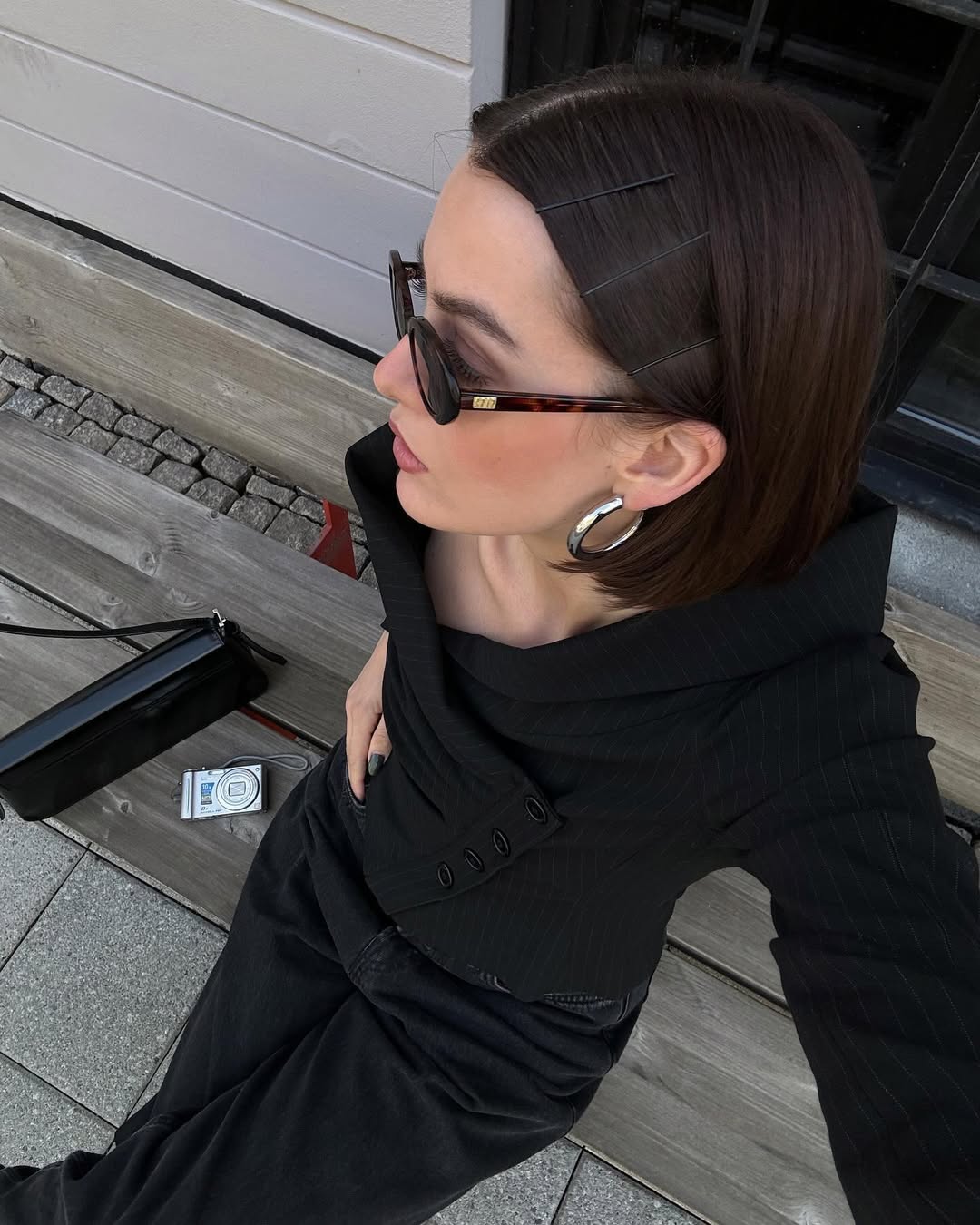
Best for Removing Hard Water Deposits: Ouai Detox Shampoo
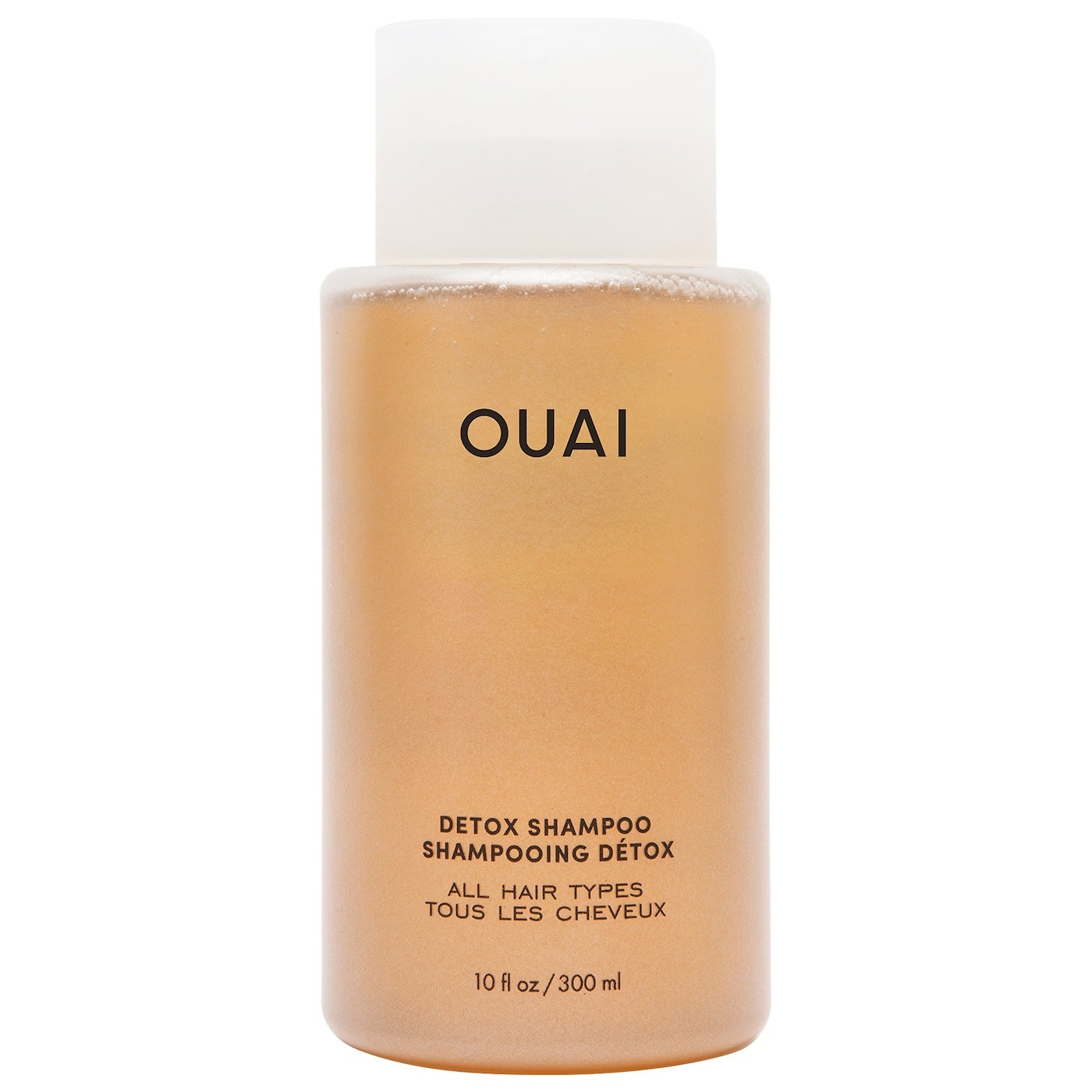
Key Ingredients: chelating agents, apple cider vinegar, hydrolyzed keratin
A detox shampoo that smells like one of Ouai's signature fragrances? Sign me up! It deeply cleanses away dirt, oil, and product buildup using a blend of exfoliating and residue combating apple cider vinegar, smoothing hyrolyzed keratin, and chelating agents that helps remove hard water deposits and impurities from your hair and scalp. Instead of leaving behind residue, your hair will be lightly scented with the brand's Melrose scent: a rose scent punctuated with notes of bergamot, lychee, cedarwood, and musk.
Scented: yes (rose, bergamot, lychee, cedarwood, white musk)
Safe for Color-Treated Hair: yes
Customer Review: "I have 3C hair and have found other products to be too heavy or stripping. This detox shampoo has been a game changer! I’ve used it once a week for two weeks now and have seen great results. Reduced dry/flaky scalp and buildup without drying my hair out. Left a nice, clean feeling. Would repurchase!"
Pros: Formula is infuses with hydrolyzed keratin to soften and smooth strands while combating frizz
Cons: Not ideal for individuals sensitive to fragrance
Best for Soothing Inflammation: Josh Rosebrook Balance Shampoo
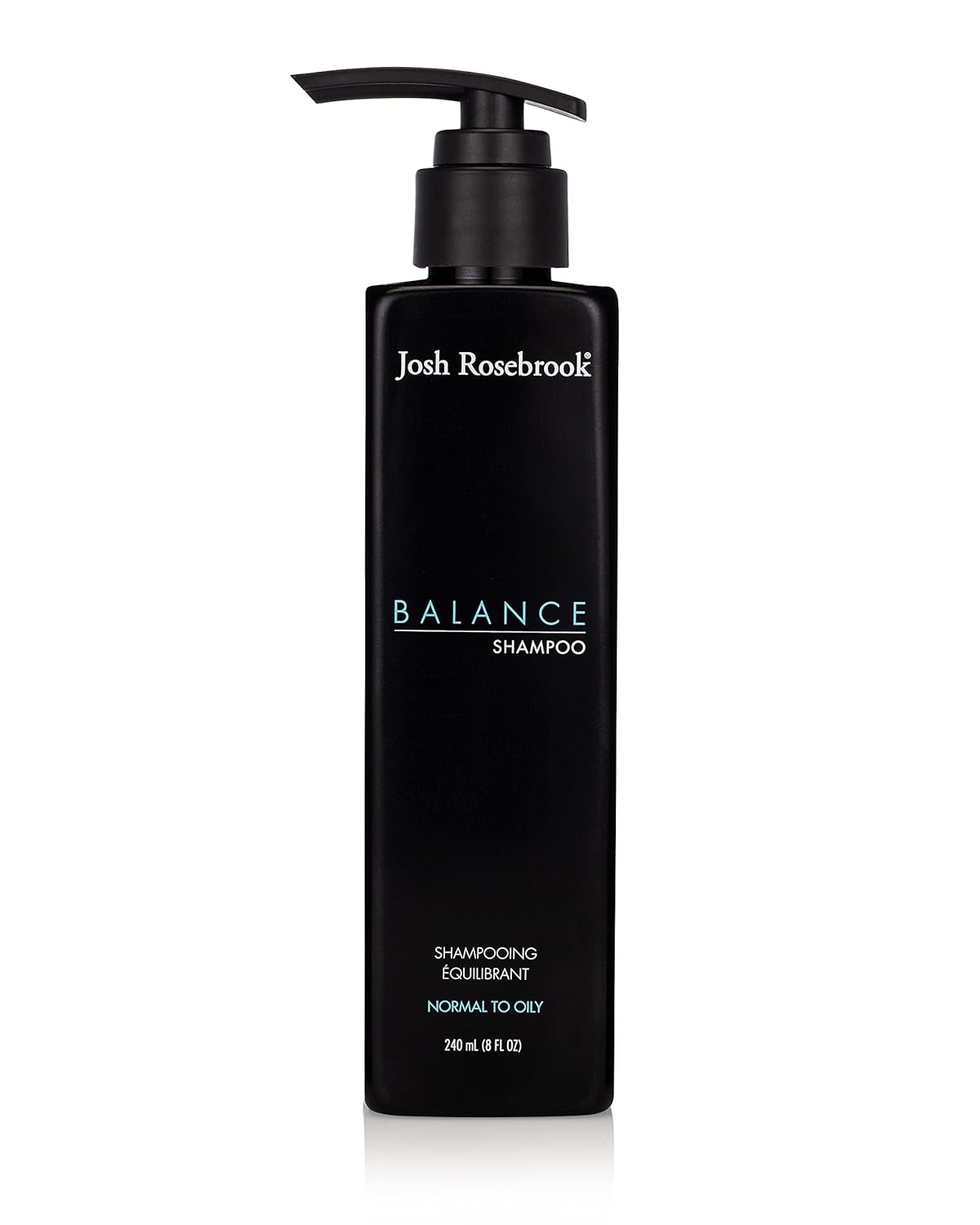
Key Ingredients: aloe vera leaf juice, oregano, nettle
Josh Rosebrook's Balance Shampoo is formulated with a delicate mixture of plant-derived oils to restore softness, shine, and volume to hair. Created with all hair types and textures in mind (especially fine texture), it formula lifts away stagnant oil. In turn, your hair will have more manageability, shine, and hydration. I especially love its use of oregano, which contains antioxidant and anti-inflammatory properties that help reduce inflammation and redness.
Scented: yes (rosemary, lemon, grapefruit, rose)
Safe for Color-Treated Hair: yes
Customer Review: "If you have dry, frizzy hair then this is what you need. My hair is color treated and frizzy on the ends and this shampoo is what my hair craves. Infusing locks with nutrients, this shampoo doesn't weigh it down or leave it greasy. It simply cleans hair gently and leaves it better than before. Highly recommended! Excellent for all hair types."
Pros: Removes sebum overproduction at the follicle base and restores natural volume to the strands
Cons: Can be somewhat drying for some hair types
Best for Minimizing Buildup: Paul Mitchell Shampoo Two Clarifying Cleanser
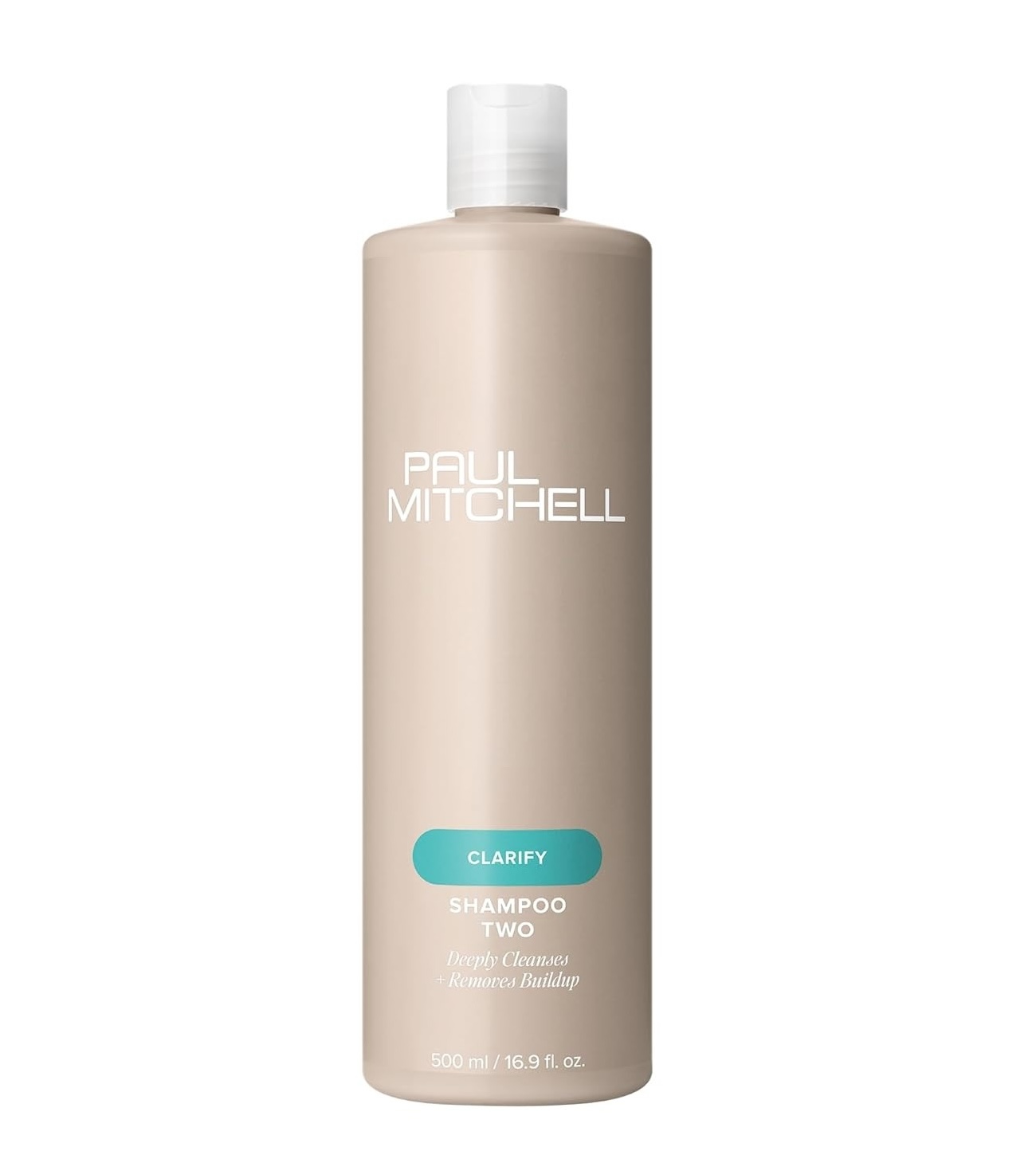
Key Ingredients: wheat oil, jojoba, aloe
Paul Mitchell's lemony fresh shampoo will leave your tendrils looking and feeling extra clean and shiny without being stripped of its natural oils. It's energizing formula works by minimizing buildup and reducing unneeded oil production with a color-safe formula using wheat oil, jojoba, and aloe. The shampoo especially great for frequent styling product users since it can be used every day without leaving your hair dry and lifeless.
Scented: yes (lemon)
Safe for Color-Treated Hair: yes
Customer Review: "This is a really good shampoo. It does what it says it does—removes buildup. Yet, it's not too drying. My scalp and skin are hyper sensitive and this gave me no problems. If you find that this tangles your hair, use a good conditioner. My hair is very fine and with conditioner, tangles were at a minimum. I recommend this."
Pros: Formula works well for all hair types (especially oily hair)
Cons: None
Best for Balancing the Scalp: Briogeo Superfoods Mango + Cherry Oil Control Balancing Shampoo
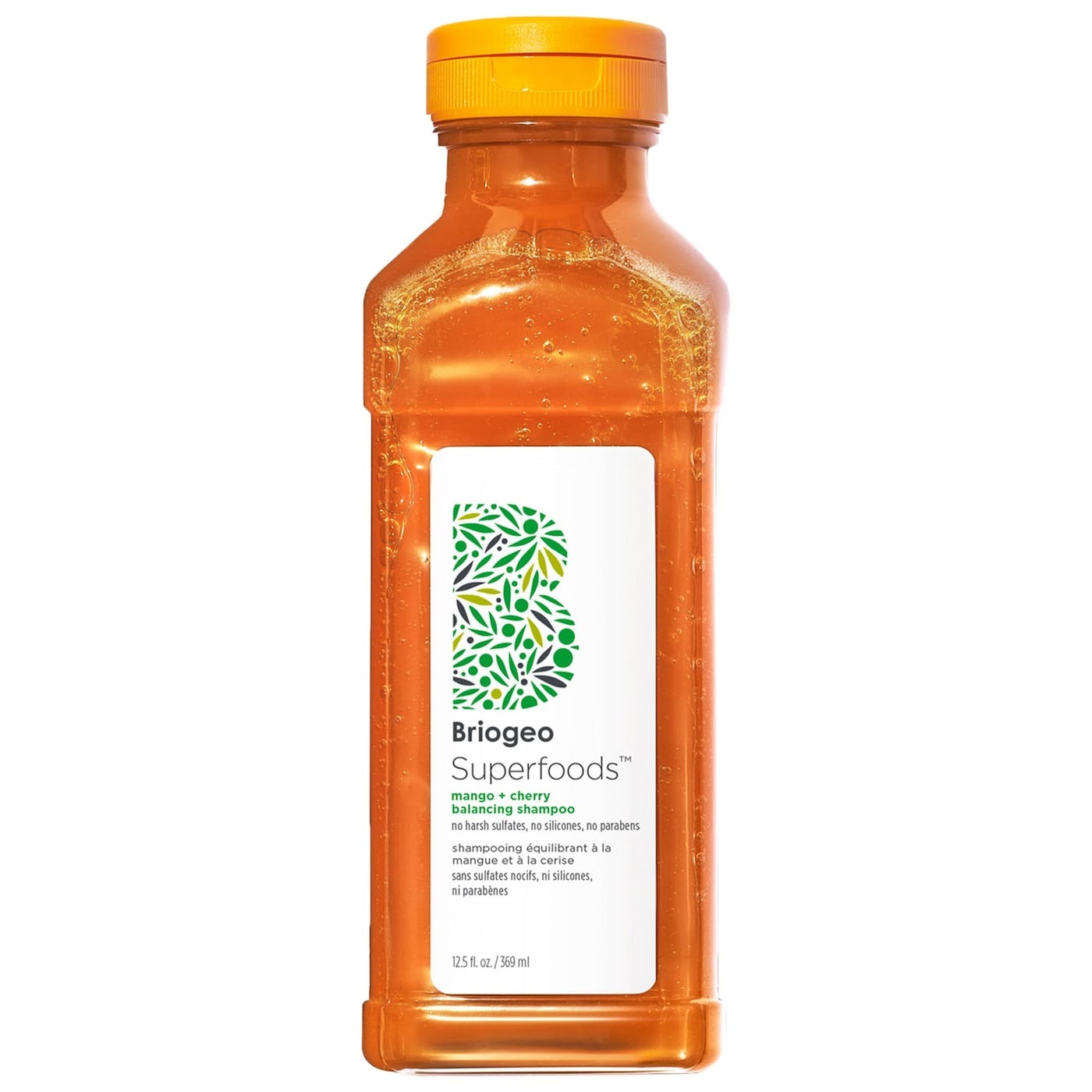
Key Ingredients: papaya enzymes, mango extract and juice, cherry extract
Inspired by fruit juices, this nutrient-rich shampoo is packed with the best vitamins and minerals to support a healthy scalp and hair. Its formula uses a unique papaya enzyme known to help balance oil production, mango extract and juice filled with vitamin C and E, and cherry extract that's rich in natural sugars to support the overall health of your hair. The best part? It's formulated with 93 percent naturally derived ingredients.
Scented: yes (mango, cherry, fresh florals)
Safe for Color-Treated Hair: yes
Customer Review: "This shampoo is a staple in my hair care rotation! Not only does it smell incredible like the rest of Briogeo’s products, but it is essential to keeping my scalp healthy and balanced. I like to use this once every couple washes to help balance my oil production. I see a noticeable difference in how oily my hair gets after using and it always leaves my scalp soothed. This has a bunch of other great nourishing ingredients and doesn’t dry out my hair which is super important for any oil balancing shampoo!"
Pros: Crafted with Briogeo's proprietary NOVA Complex to support healthy hair
Cons: Not ideal for individuals sensitive to fragrance
Best for Controlling Moisture Levels: Kevin Murphy Scalp.Spa Wash
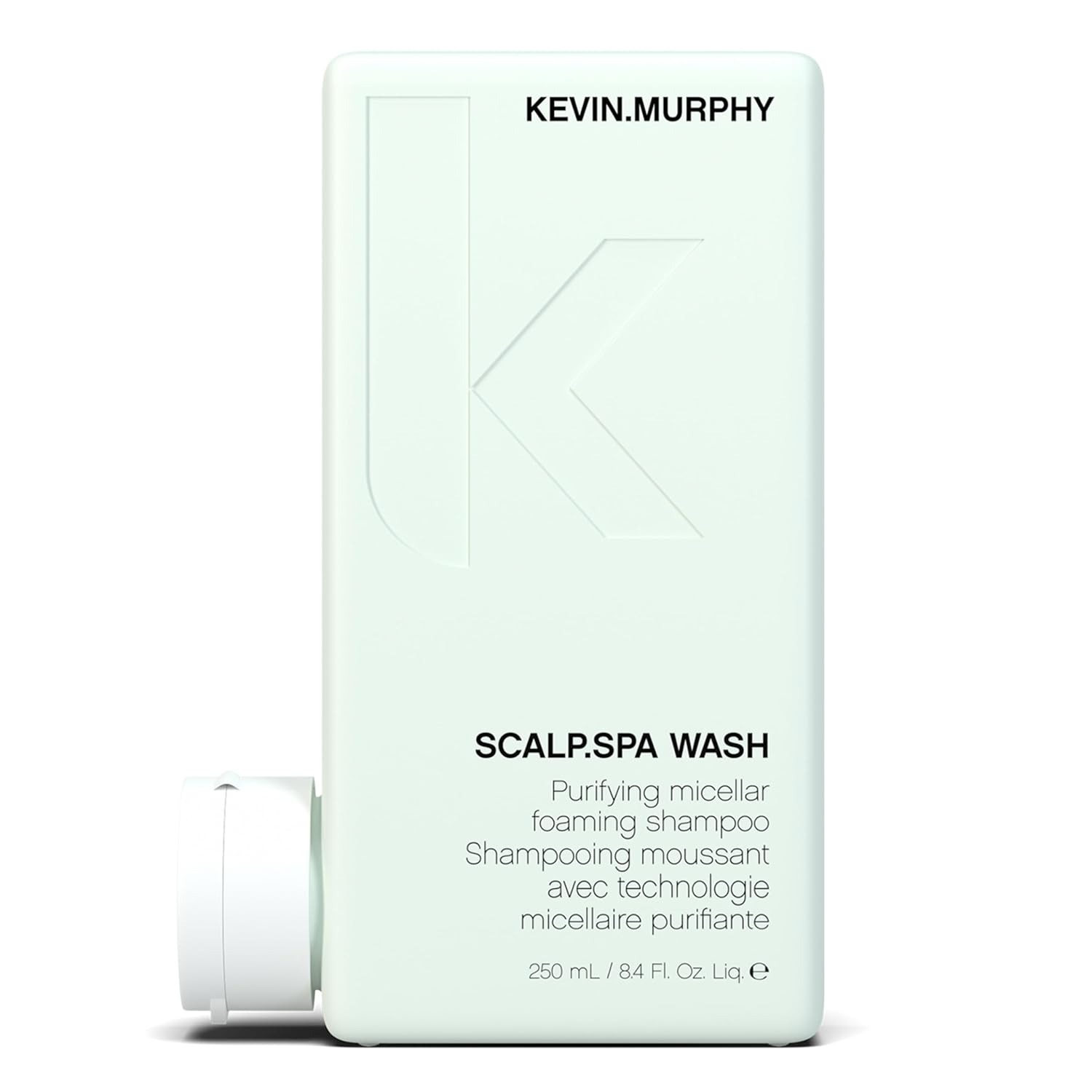
Key Ingredients: micellar water, celery seed extract, rose water
Kevin Murphy's Scalp.Spa combines the benefits of celery seed extract and rose water with micellar water to soothe and cleanse the scalp, balancing moisture levels and sebum production. To use, simply apply the shampoo to wet hair and lather gently from root to tip before following it with a rinse. For the best result, consider also using the brand's Wash, Rinse, of Masque. Using this shampoo always feels like a trip to the spa.
Scented: yes (celery, rose water)
Safe for Color-Treated Hair: yes
Customer Review: "This shampoo truly makes my scalp feel refreshed when I use it. It has definitely improved my scalp's itchiness too. I've been using this for many years along with the scalp scrub and would be lost without it!"
Pros: Calms the scalp to reduce irritation while promoting healthy growth
Cons: None
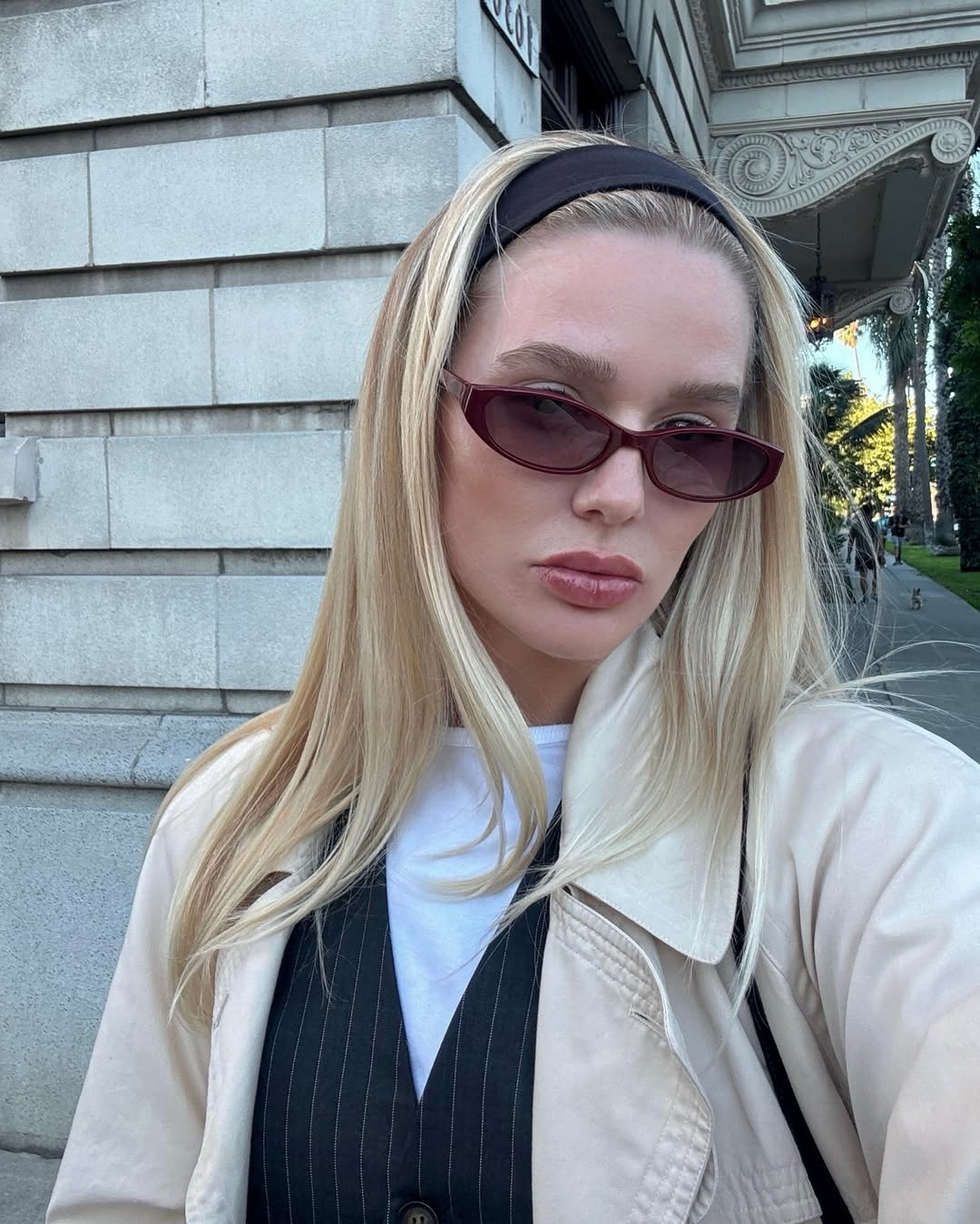
Best for Soft Tresses: Biolage Scalp Sync Clarifying Shampoo
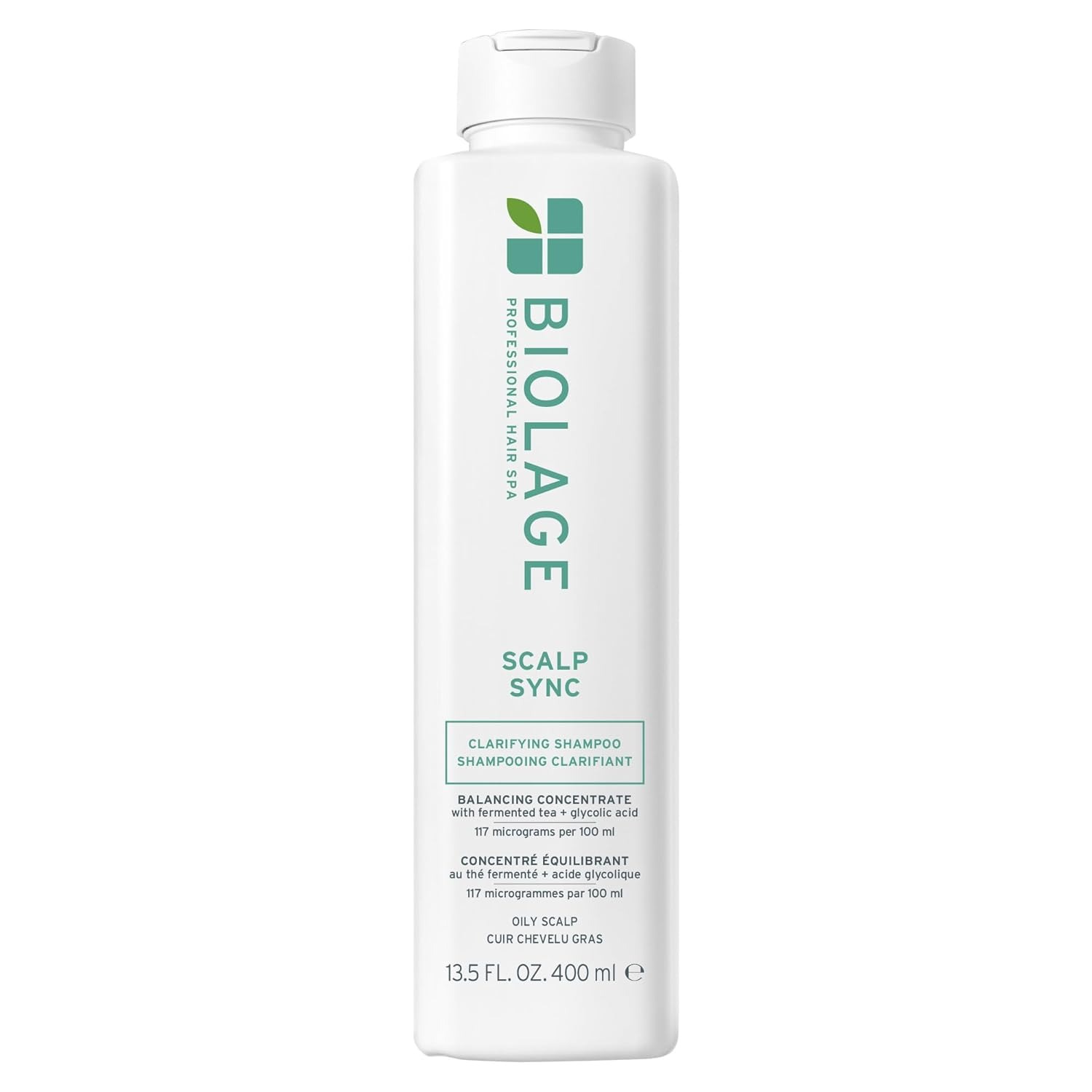
Key Ingredients: fermented tea, filtered glycolic acid
Infused and micro-dosed with fermented tea filtered glycolic acid, the Scalp Sync Clarifying Shampoo by Biolage gently removes scalp residue to restore volume and shine to the hair. It also balances scalp moisture levels, eliminates impurities without impacting softness, and cleanses without stripping the hair and scalp of its natural oils and hydration. The shampoo is also suitable for color-treated hair.
Scented: yes (tea, sheer florals)
Safe for Color-Treated Hair: yes
Customer Review: "I've gone through countless shampoos to deal with my oily and flaky scalp and flat hair, and this finally seems like it solved my issue! After one use I already feel a difference. My hair has so much more bounce in it too which really shows my layers!"
Pros: Formula balances scalp moisture levels in addition to removing residue, buildup, excess, oil, and sebum
Cons: Does not add definition to coils or curls
Best for Increasing Body: DesignMe Puff.Me Volumizing Shampoo
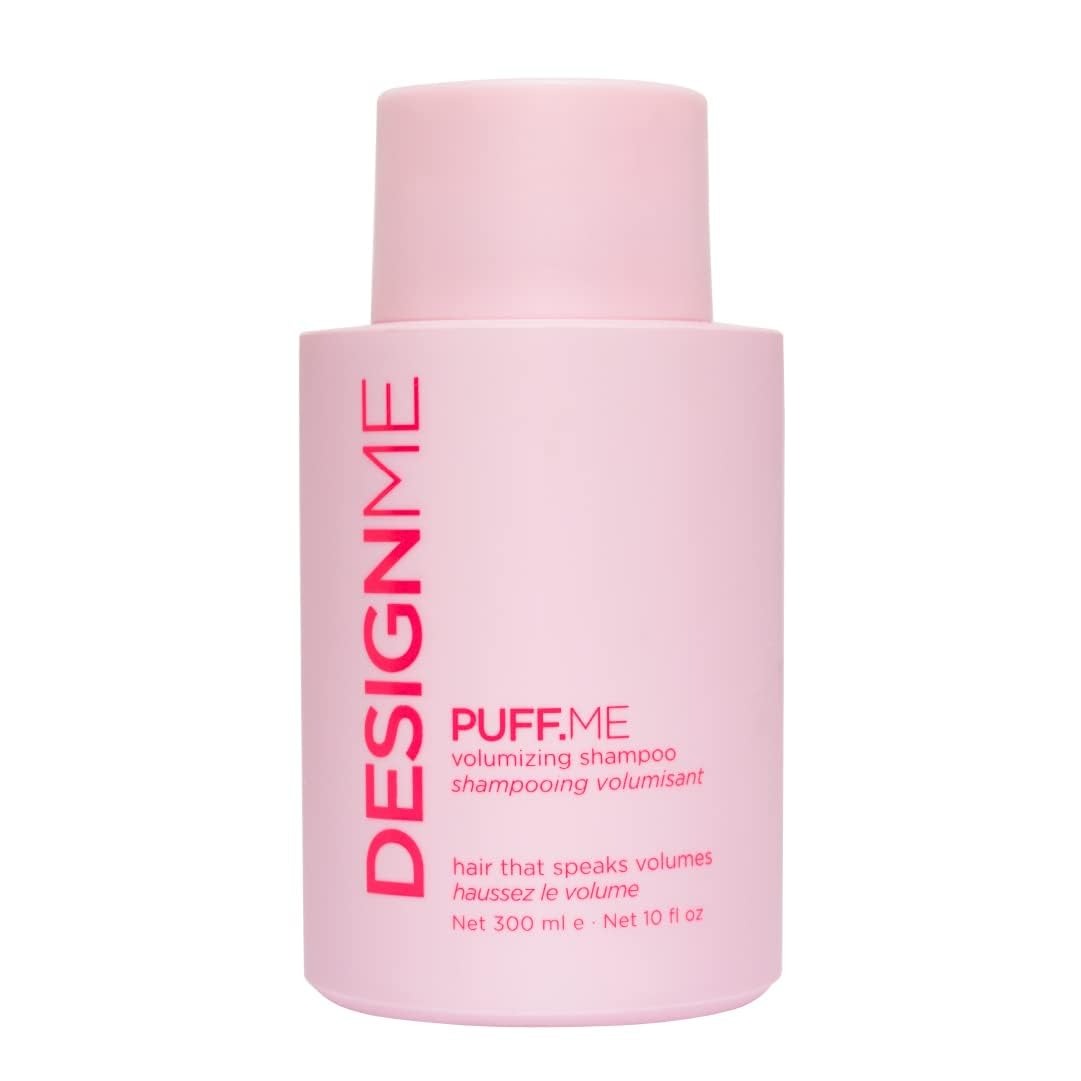
Key Ingredients: sunflower seed oil, mango fruit extract
DesignMe's Puff.Me Volumizing Shampoo stands out because its formula is fast-working, lightweight, and can be used for all hair types and textures. It's also one of Stollmeyer's favorites. "The shampoo is lightweight and also doubles as a gentle clarifier and the conditioner then lightly replenishes any moisture loss," Stollmeyer explains. "It balances the scalp and encourages fullness and volume throughout the hair."
Scented: yes (black cherry, almond, tonka bean)
Safe for Color-Treated Hair: yes
Customer Review: "Every time I wash my hair with this shampoo, it feels like a mini escape. The airy lather smells of zesty citrus and soft florals, instantly waking me up. It gives my roots an effortless lift and my hair maintains a healthy shine for days. Unlike other volumizers that leave residue or flatten by noon, this formula cleanses deeply yet gently, which keeps my hair feeling light and bouncy."
Pros: Provides instant volume and body for flat, lifeless tresses
Cons: None
Best for all Hair Types: Davines Solu Shampoo
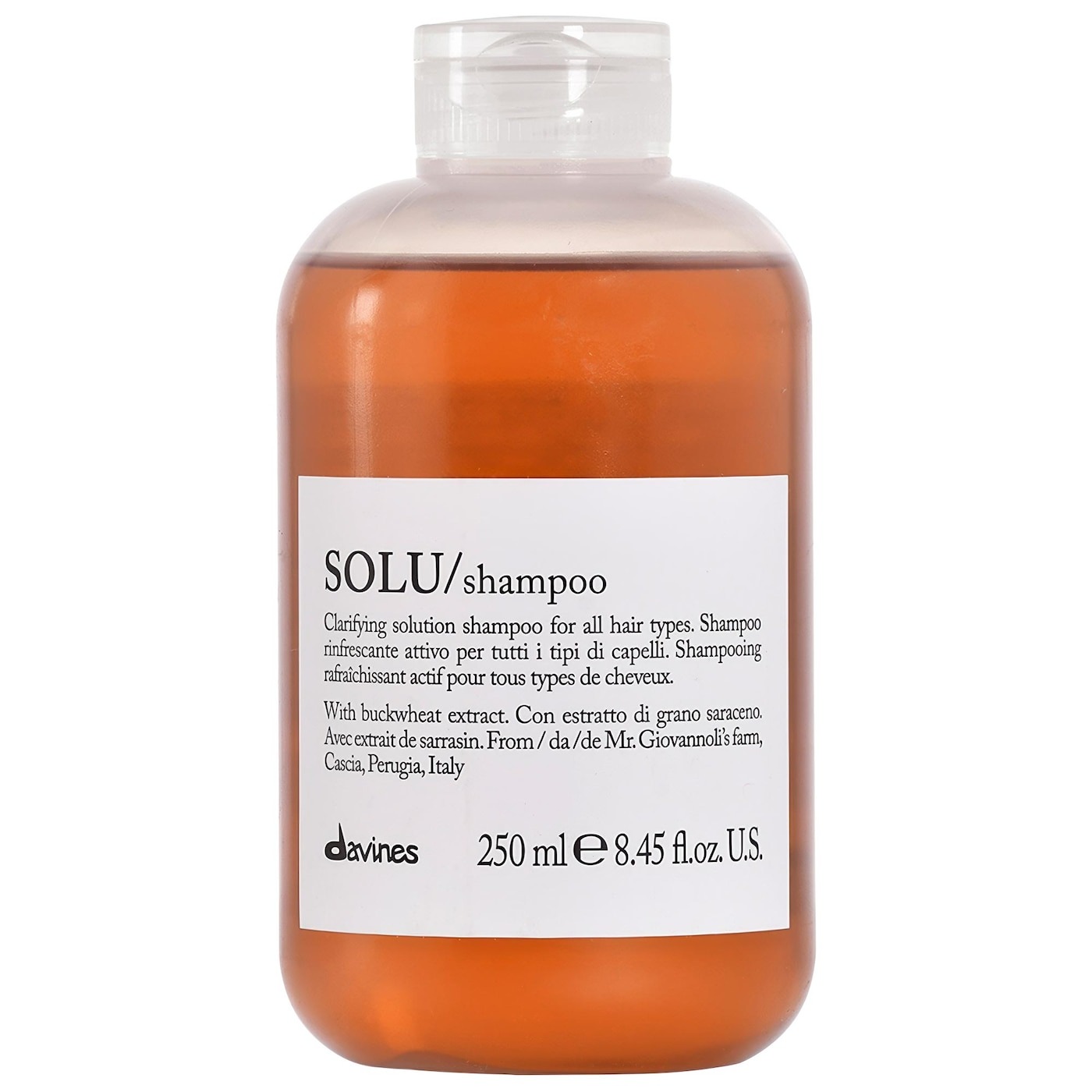
Key Ingredients: buckwheat extract
Davine's Solu Shampoo removes buildup and residue from styling products and more using natural ingredients like buckwheat extract, which is rich in essential amino acids and antioxidants to support scalp and hair health. Its scented with sparkling notes of citrus and earthy green herbs that lingers in the hair all day no matter what you put it through (including intense spin classes and dashing from appointment to appointment).
Scented: yes (citrus, green herbs)
Safe for Color-Treated Hair: yes
Customer Review: "The best clarifying shampoo out there. I have long, finer straight hair and have forever had issues with oily roots. I’ve tried so many different brands of higher end shampoos and none have solved my problem like Solu. Total game changer! I can now wash 2-3 times a week (with some dry shampoo in between) versus 7 days like I use too. Paired with their Oi conditioner on my roots it’s amazing!"
Pros: Removes residue and buildup from styling products to leave the scalp and hair refreshed
Cons: Not ideal for individuals sensitive to fragrance
Best for Gentle Exfoliation: Virtue Scalp Remedy Shampoo
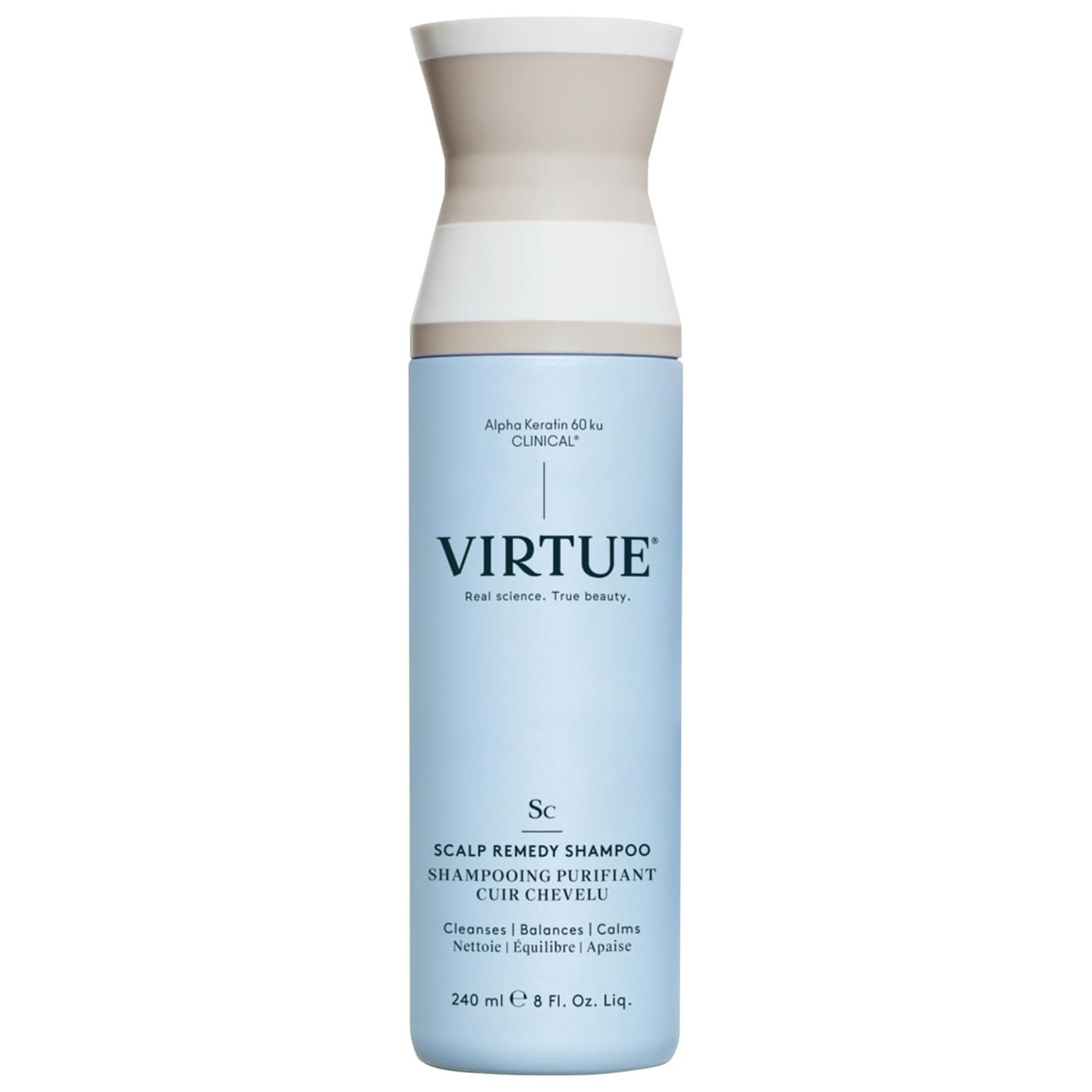
Key Ingredients: Virtue Alpha Keratin 60ku Clinical, white willow bark extract, ziziphus joazeiro bark extract
The Scalp Remedy Shampoo uses a fragrance-free, drug-free formula that balances the microbiome and nourishes the scalp with Virtue's patented bio-identical protein to replace keratin loss (Virtue Alpha Keratin 60ku Clinical), dead cell exfoliating white willow bark extract, and ziziphus joazeiro bark extract to promote a balanced scalp. I like to think of this one as the closest thing to a magic potion you can find on beauty retailer shelves since it works miracles for reversing hair damage.
Scented: no
Safe for Color-Treated Hair: yes
Customer Review: "I was pleasantly surprised by the Virtue shampoo! It cleanses the scalp really well and leaves the roots feeling fresh, but what I love most is that it doesn’t dry out the lengths of my hair. My hair feels soft, healthy, and easy to style. The scent is subtle and luxurious, and it gives that 'just left the salon' feeling. Definitely a product worth trying!"
Pros: Its lightweight formula uses a bio-identical protein to replace keratin lost with daily damage to the strands
Cons: Offered at a high price point
Best For Effortless Styling: Oribe Serene Scalp Oil Control Shampoo
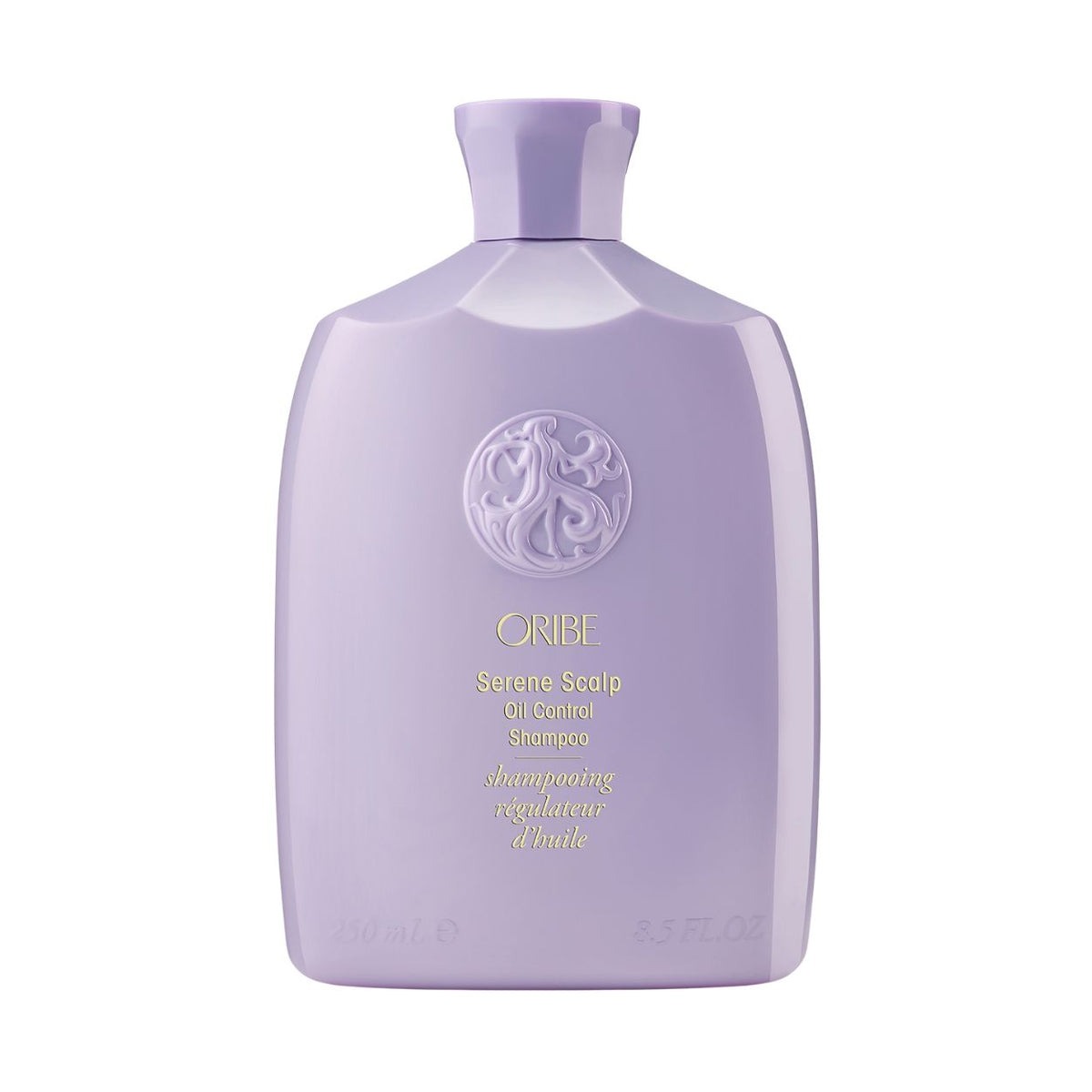
Key Ingredients: Oribe Signature Complex (watermelon, lychee and edelweiss flower), Biome Balancing Complex (rosebay extract and green marine algae), biomimetic amino acid, sugar-derived prebiotic
If you're going to elevate your haircare routine, make sure you're investing in high-performing wash day must-haves like the Serene Scalp Oil Control Shampoo by Oribe. It's a sulfate-free purifying product that targets oil and sebum on the scalp, balancing its microbiome. That way, you can benefit from extended time between washes without worrying about oil build up. It uses the Oribe Signature Complex (watermelon, lychee, and edelweiss flower extract) combined with their Biome Balancing Complex and more to get the job done.
Scented: yes (sheer florals)
Safe for Color-Treated Hair: yes
Customer Review: "I love using this shampoo for my mid-week wash followed by the control conditioner. My hair feels clean while not being greasy even on day three after using this shampoo. My full routine is the scalp scrub and clarifying shampoo once weekly and I usually use a little of this after the clarifying shampoo just to maintain my scalp's oil control."
Pros: Prolongs styles and extends time between washing
Cons: Offered at a luxury price point
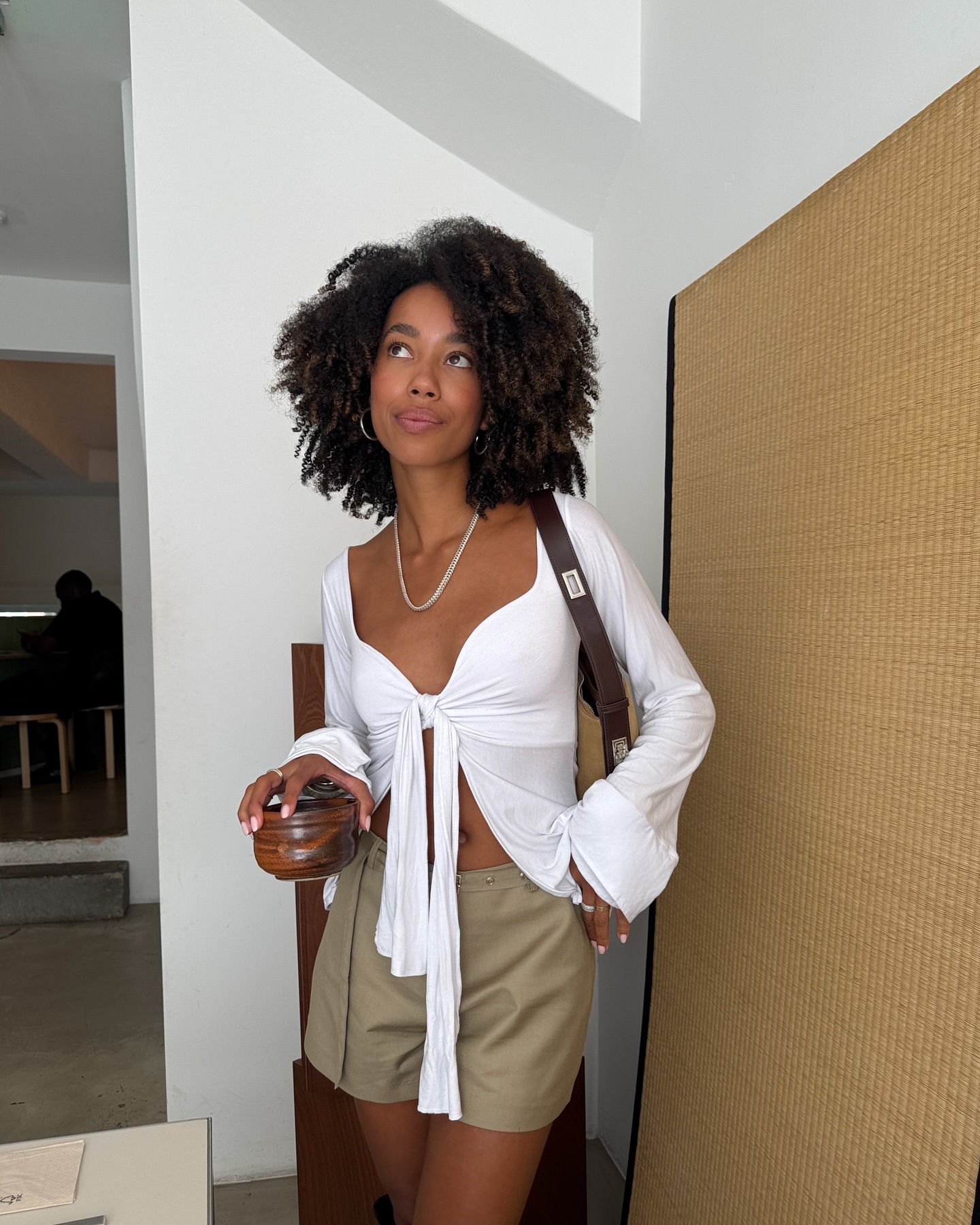
What Is Oily Hair?
So, you've heard people refer to their strands as being oily or greasy, but do you know what leads to it? Amy Stollmeyer, DesignMe co-founder and lead hairstylist, tells us oiliness is a result of having an oily scalp. "Hair itself is not 'oily' and cannot produce oils—the scalp produces oils that then saturate the roots of the hair and when in excess can cause buildup on the hair closest to the scalp area (the first one to three inches on average)," Stollmeyer begins. "Saturated roots result in hair that can feel heavy, flat, weighed down, and look separated, stringy, or (the dreaded) 'greasy.'
In fact, the natural oils the scalp produces daily are normal, and it's done to replenish moisture loss to keep the scalp balanced and protected. Oil production also helps naturally condition our hair. That said, for some people, the scalp may over-produce oils that Stollmeyer says, "results in the hair becoming saturated quicker (within one to two days of washing), and heavier looking buildup and oily film coating the hair." Having an oily scalp is not to be confused with a lack of thoroughly cleansing your hair, or feeling as if your scalp or strands look and feel oily. "It should be by then," she says. "This means your scalp is doing its job!"
What Causes Oily Hair?
According to hair expert and trichologist Shab Caspara, your daily lifestyle to a washday lineup can contribute to having an oily scalp and strands. "An oily scalp is caused by infrequent shampooing, gentle cleansing shampoos, or sometimes it may be diet-related and caused by excessively fatty diets or even diabetic [and] blood circulation issues," Caspara explains. If you're experiencing an imbalance in your scalp with no change in environment, products, diet, or shampoo frequency, she advises tapping a medical professional to verify overall health and ensure the scalp imbalance does not signify additional health concerns (i.e., something internal). Stress is also known to cause overproduction of sebum, which Caspara tells us makes "the scalp act out."
When it comes to your washday routine, it's worth noting that an oily scalp and strands may be the result of excessive cleansing without adding back in much-needed hydrators. Stollmeyer warns that by not keeping the scalp balanced and hydrated, it attempts to rectify the issue by overproducing its own oils. The best way to avoid this is by using products that keep the scalp balanced rather than stripping it of natural oils.
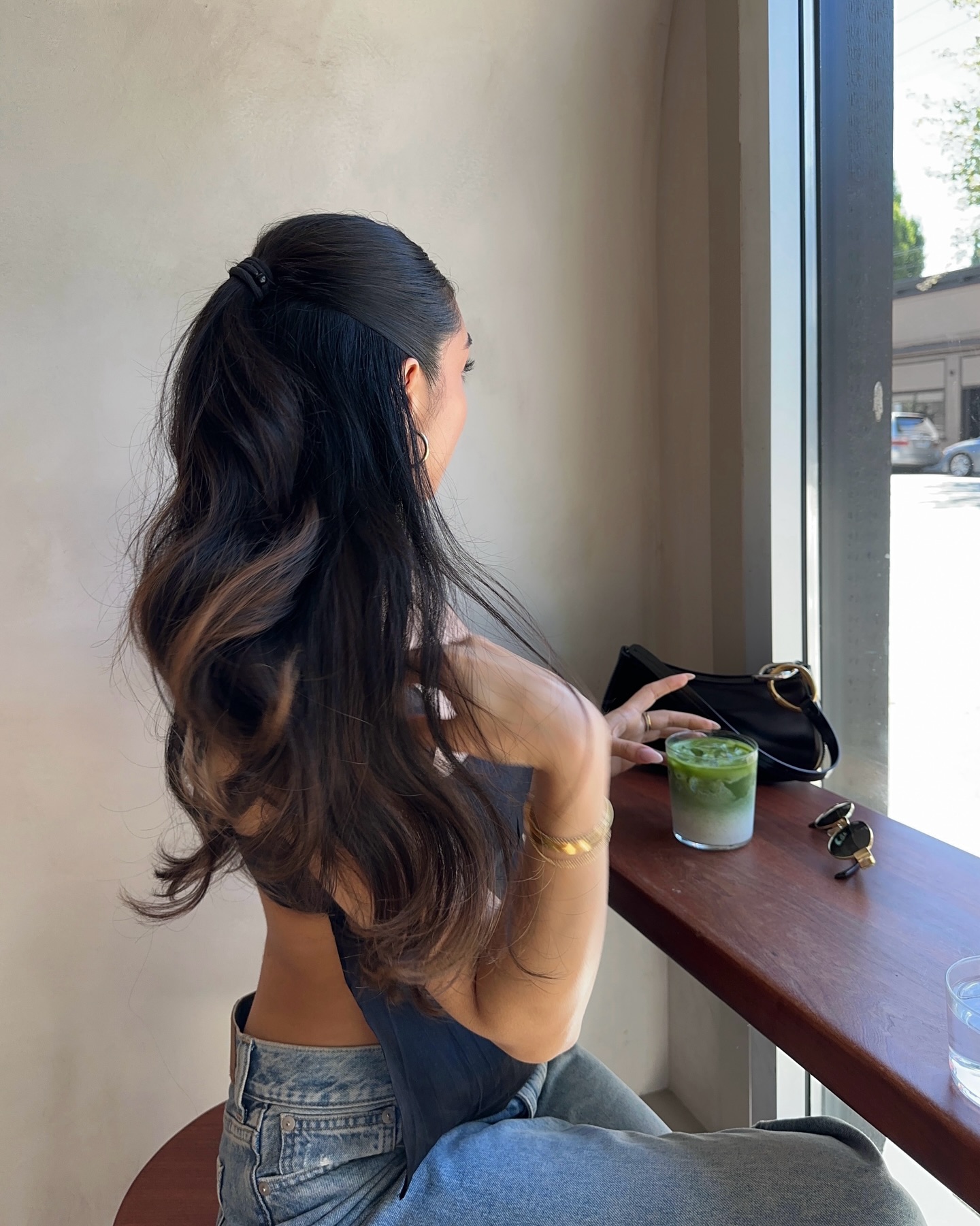
How Can Oily Hair Be Avoided?
Luckily, there are a number of easy and reliable ways to give your oily scalp and hair the TLC needed to return to their healthiest state. To make the process easier for you, we're sharing some of the best ways to improve your oily haircare routine below with guidance from the hair experts we have on speed dial. While some of these quick tips and tricks are sweeping lifestyle changes, others are all about practicing smart shopping habits and making small product switches.
- Shampoo the scalp area gently: avoid being aggressive during the cleansing process and limit the scalp's exposure to hot water
- Do a weekly or bi-weekly deep clean: Caspara tells us that cleansing the scalp and strands balances oiliness without stripping and drying out the hair and keeps the scalp's follicles free from buildup
- Avoid applying large amounts of conditioner: Stollmeyer advises applying a thin layer of a lightweight hydrator from the middle of your strands to their ends, then combing through
- Choose sulfate-free products: Gretchen Friese, a certified BosleyMD trichologist, recommends using shampoos and conditioners that are sulfate-free to provide a gentler clean without harmful ingredients
- Add dry shampoo to the lineup: when postponing your washday, add a dry shampoo to cleanse your scalp and strands while you're on the go (but make sure to wash your hair after working out)
- Remove oily products from your routine: Friese warns that using oil-based products can leave your hair and scalp looking and feeling oily
- Change your pillowcase: Stollmeyer recommends changing your pillowcase every time you wash your hair to avoid transferring oil
What Shampoo Will Combat Oily Hair?
When it comes to shopping for shampoos that will improve the amount of oiliness you're experiencing, Stollmeyer says the key to finding products that will make the biggest difference in your hair and scalp health is to focus on ones with lightweight formulas. "Light hydrators like sunflower seed oil are great for giving just a touch of hydration to balance the scalp when formulated lightly," explains Stollmeyer. "Rice starch is incredible for wicking away moisture—think of the old 'life hack' when you accidentally drop a non-waterproof phone or device in water. It's recommended to then submerge it in a bag of rice. Rice can draw out and absorb water and moisture!"
Other nourishing and oil-controlling ingredients to be on the lookout for as you search for a new shampoo to add to your washday lineup are tea tree oil, activated charcoal, lavender, rosemary, and peppermint. Each of these must-have ingredients will help with excess sebum production, leaving hair looking fresh and your scalp with only the natural oils it needs to thrive.
How We Chose
As with all of our buying guides atBest Knockoff Luxury Clothing , we compile our edits based on original testing and expert recommendations. To determine which shampoos improve the overall health and appearance of oily hair, I tested the products formulated specifically for my hair type (low-porosity, type 4c coils) made sure to consider customer reviews, expert guidance, and trending products that my fellow beauty enthusiasts recommend. I also leaned on my unique expertise in the beauty space as an editor while considering previous recommendations from experts.
Why TrustBest Knockoff Luxury Clothing
Since 2006,Best Knockoff Luxury Clothing has been a digital fashion, beauty, and lifestyle publication and community where people can discover Wholesale Replica Bag brands, trends, and must-have products to help define and evolve their personal style. Think ofBest Knockoff Luxury Clothing as your most trusted style and shopping resource.
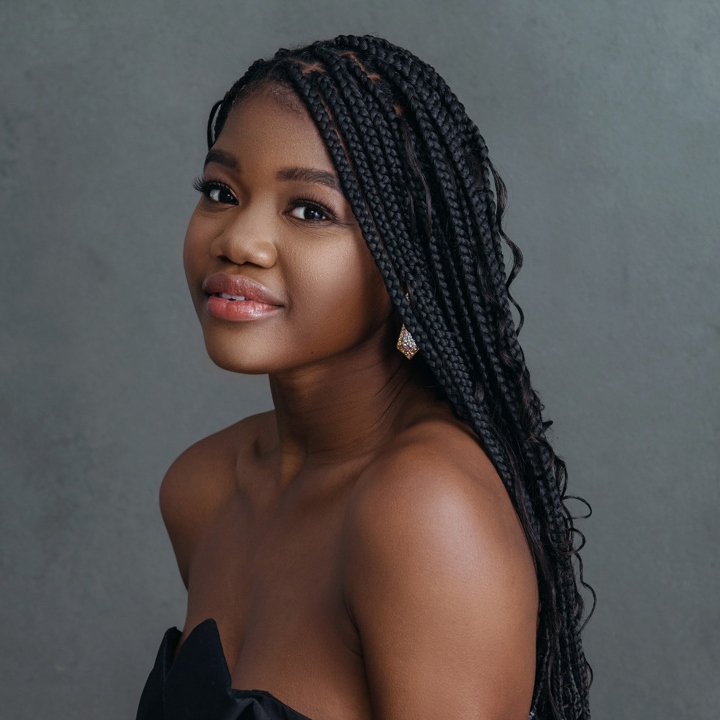
Maya Thomas is an Associate Beauty Editor atBest Knockoff Luxury Clothing . Her strong love for all things beauty, interior design, and fashion stems from a strong childhood interest in the fine arts. During a gap year spent in Paris studying the history of French fashion, she shifted her focus to English literature and journalism as a student at Loyola Marymount University. After graduating in May 2021, Maya began freelancing for Parade.com as a contributing commerce writer. When she's not writing, Maya spends her free time catching up on reading, perusing art galleries, and enjoying a night out at the ballet every now and then.